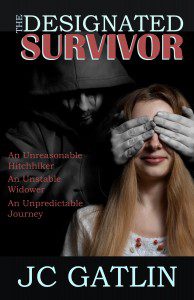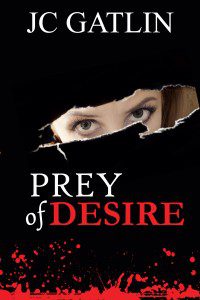From time to time, I like to introduce my readers to fellow mystery writers as guest bloggers. I met JC Gatlin at a writer’s conference several years back. JC lives in Tampa, and has written two mystery-suspense novels, The Designated Survivor and Prey of Desire. He also maintains his own blog about the art of spinning nail-biting, edge-of-your-seat mysteries at www.jcgatlin.com. I want to thank him for exchanging blog posts with me (you can read mine by clicking here), and providing writers with some excellent advice on how to kill your novel.
for exchanging blog posts with me (you can read mine by clicking here), and providing writers with some excellent advice on how to kill your novel.
Want to kill your novel? Give it a weak opening
A weak opening is a novel killer. And, there are quite a few suspects standing in the line-up.
The first in line is a serious, serial novel killer: the clichéd “starting with a dream.” It seems like a good thing — kicking the story off in high gear with some dramatic scene that engages the reader, or a daring action scene that has the reader on the edge of his seat. Then the character wakes up and we realize it was all just a dream. This culprit really only serves one purpose and that’s to trick and aggravate your reader.
Next in the line-up is another cliché that describes someone getting out of his car in the first sentence of the book. It’s obvious why this novel killer appears to be helpful and serving to the plot: the main character and the reader are arriving at both the scene and in the story together. There’s action happening, which is also a good thing. Unfortunately, it’s been done too many times and some agents and editors will actually decline a book based on that opening. Why take the risk when the heart of te scene – and probably a great opening line – is just a few paragraphs away?
 The third novel killer in the line-up is the lengthy description of the location and scenery. The hazelnut hues of the carpet and the dust aintings of various family members hanging on the wall or the sun peeking through gathering white clouds above the lush forest of majestic pine tres may be pretty sentences and provide many details that you find interesting, but it’s not necessarily interesting to your reader. Scenery description must play hand-in-hand with action and dialogue. It should never stand alone as the opening paragraph(s) of your novel.
The third novel killer in the line-up is the lengthy description of the location and scenery. The hazelnut hues of the carpet and the dust aintings of various family members hanging on the wall or the sun peeking through gathering white clouds above the lush forest of majestic pine tres may be pretty sentences and provide many details that you find interesting, but it’s not necessarily interesting to your reader. Scenery description must play hand-in-hand with action and dialogue. It should never stand alone as the opening paragraph(s) of your novel.
The fourth killer is a tricky one, because – like the femme fatale who plays both sides of the law – sometimes it works with the author and sometimes it works against. This deadly tightrope is known as “opening with dialogue.” Strong, dramatic dialogue can be engaging, provide a shocking and memorable first line, and swiftly move the reader from the opening line into the opening scene. It can be a powerful ally. However, be warned. If not used correctly and handled with the utmost care, it will drop the reader into the middle of a muddled, confusing conversation. A confused reader who doesn’t understand who is talking and what they’re talking about will close the book faster than a lid on a coffin, and *BAG* the book is dead.
Finally, in this line up, we have the worst offender to open any book. This is the novel killer that spells certain doom, and that’s “The Boring Opening.” This culprit comes in all sorts of shapes and sizes, including the lengthy back-story, a history lesson about the time period or the location, a flashback or a character biography. Authors generally fall into this trap because they want to provide information that they feel is pertinent to the story. They’re attempting to set it up, and dumping loads of information in the process. And that’s exactly what it is – a process. It’s often the result of hours of painstaking research or world building on the author’s part. It’s good stuff – to the author – and he doesn’t know what to do with it. Cut it from the opening and skip to the chase.
building on the author’s part. It’s good stuff – to the author – and he doesn’t know what to do with it. Cut it from the opening and skip to the chase.
The opening must hook the reader. It must start with something happening. That doesn’t mean James Bond-style adventure. Nothing has to blow up. It simply means it must be interesting and entertaining to the reader.
The sun peeking through gathering clouds? Boring! A diatribe of the sleuth’s grandparents arriving in America in 1812? Tedious! Recognize these five culprits in the line-up and avoid them as you’re writing. Their job is to kill your novel.